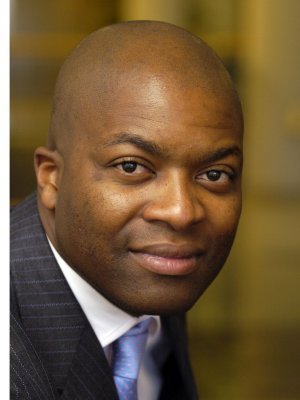Until the 3 August 2016 local government elections and resultant coalitions in top metros such as the City of Tshwane, City of Johannesburg and Nelson Mandela Bay, coalitions were largely the preserve of the Mother City. But now this cooperative form of governance is stepping out of the Western Cape.
Is this an indication of more to come? The experts seem to think so, with many using the 2016 poll as a barometer for 2019 when South Africa goes to the polls for national government elections.
Author and academic Sanusha Naidu believes there is much to play for over the next two years, during which time the ANC must learn to wear several hats: that of uncontested ruling party, the main party in a coalition and the opposition. The months since August have highlighted how difficult the ANC finds adapting, says Naidu. “They didn’t do well [in opposition] in the Western Cape. They disintegrated at the provincial level, with internal issues, squabbles and legitimacy crises. Some even say their policies in the Western Cape were fairly defensive.”
The ANC needs to re-educate itself, she says. “[The ANC] has to think how they engineer coalition making now, at the local government level, in preparation for the outcome of 2019,” she says. That requires extricating themselves from their internal denialism, “starting to think like an opposition” and holding the likes of the DA accountable.
“I will be very curious to see how it plays out before the policy conference [in June 2017], although the elective conference [at end 2017] is our marker in terms of what will happen to the ANC in 2019. And we are getting a lot of conflicting messages,” she says.
While uncertainty persists around President Jacob Zuma’s future, political commentator Justice Malala believes he isn’t going anywhere soon. While this could be seen as a boon for opposition parties, Malala is quick to point out that, so far, the real winners post-August are the electorate. Speaking at the Ashburton Investments Roadshow in late 2016, Malala said: “I was in Cape Town last week and friends were asking when I go back [to Johannesburg], and they said: ‘Well enjoy Cape Town North’…. This city is run by the DA and there has been not a single person saying ‘no, this is wrong’. For me that is a powerful thing.”
Malala hopes the next two years will force all parties to start putting words into action. But therein lies the rub of coalition governing, which requires a delicate balance of give and take. This represents a huge downside for metros sorely in need of action. Referencing the loose arrangement between the EFF and the DA in the City of Johannesburg, Malala recalls: “The first day that [Mayor] Herman Mashaba was in office he said ‘refuse removal in the city it’s not working, I’m going to break it up into seven pieces and sell it off to young entrepreneurs’. The EFF said he’d be out office in the next three days because that is privatising a national asset. Has he done it? No.”
Similarly, Mashaba’s hands are tied over land invasions. “It’s state land and they can’t remove those people because the EFF has a view that you don’t move people,” says Malala.
Personal politics rears its head
Certainly the EFF’s impact runs deep. But, given recent comments by EFF leader Julius Malema on eNCA’s CheckPoint that spoke of a merging of the EFF and ANC, Naidu believes there is more to watch on this front. If this is Malema’s long-term play, then the very longevity of cooperation at metro level could be at stake.
Malala agrees: “I think both (DA leader Mmusi) Maimane and Malema are going to have to do something about these coalitions to give them some formality or health. I think that, particularly in the City of Johannesburg, the ANC and the EFF could end up running it. Tshwane it is a slightly different story.”
How the electorate views these political moves will be an issue, says Naidu, who believes coalition governing already “irritates and frustrates the electorate”. They may become even more disillusioned if action at municipal level is derailed by political manoeuvrings.
The coalition challenge
South Africa is blessed with an example of how coalitions might work in the history of the City of Cape Town and the Western Cape. Based on comments by Western Cape Premier Helen Zille in her new memoir, Not Without a Fight, it was not an easy ride in the face of ANC ‘dirty tricks’ and DA infighting.
Dr Mzukisi Qobo, co-author of The Fall of the ANC: What Next? and a senior lecturer at the University of Pretoria, believes problems are inevitable. “The metros are going to ask tough questions when the [Gauteng] Premier sets out his 10-point plan during the Premier’s address [in early 2017]. They will want certain things that he didn’t think of and co-operation will be hard. All you have to do is look at the Western Cape… there was a difficult relationship between the ANC at the provincial level and the [DA-run] City of Cape Town.”
Qobo notes that as a result of these political shenanigans “certain things almost died, Wesgro (the Western Cape’s trade and investment body) almost collapsed because the City said ‘we are not going to put our money into this’, because there were [concerns] around transparency and how the money was used. Tourism Cape Town is another entity that almost died. Then, of course, the ANC lost the provincial government and the province got back to working together again. You may get a similar thing happening in Gauteng.”
Sisa Ntshona, the newly appointed CEO of SA Tourism, has a more optimistic view. He feels the events of 3 August may trigger the development of a performance culture. “However,” he warns, “if all this change does not translate into economic prosperity for everyone then it means naught. If anything it will add to the turmoil. Those are the challenges which are sitting on any coalition that exists: how do you satisfy these things when they are sitting with different views?”
Putting on his tourism hat, Ntshona says the outcome of elections have a huge role to play in how the world views South Africa; which has implications for overseas tourism numbers. He is less certain that it will make a difference locally. “Will people be more inclined to travel to certain geographical areas in the country because it is DA managed or under the ANC? I don’t think so.”
Similarly, according to FNB property analyst John Loos, don’t expect any ‘semigration’ to DA-led coalition metros to drive up property prices any time soon. However, he does believe that strong local and provincial government competition is often a positive driving factor. “Western Cape’s advantage has been strong competition in elections, with the province changing hands quite frequently since 1994. Competition in the political arena has the potential to lift human performance… It can improve urban quality of life should it translate into quality service delivery, and this, in turn, can attract skills and drive longer-term economic growth.”
Playing out in practice
Cape Town, it must be noted, isn’t the ideal poster child when it comes to addressing inequality, which explains the reaction of trade union Cosatu following the EFF’s agreement to support the DA against the ANC; a move, it said, would negatively impact the working class. While that remains to be seen, Naidu does agree that the ongoing issue of safety and security on the Cape Flats highlights poverty and inequality in the Western Cape. In Gauteng, she says, “people voted for the DA, and now they have to deliver. You can’t keep papering over the cracks.”
Unless political parties and coalitions actively tackle issues, the likes of Mandela Rhodes Scholar Nompumelelo Zinhle Manzini feels the youth in particular will take to the streets: “More social unrest can be expected in 2017 if the government does not do anything to address the needs of the poor and the lower working class.”
Manzini stresses that any growth must create opportunities for the youth. “I don’t have any hope in the coalition system that has transpired post the August elections yet, perhaps once we see them in action we can have a different conversation. I wonder whether the change in the political landscape will leave the youth in the same place they were previous to the change. One can only hope that the youth will be able to capitalise on this shift; if they are able to this it will give us an idea of how serious the DA is about bringing their ‘so-called change’ to our country.”
It seems the jury is still out as to whether South Africa’s political parties learn their roles in this new dance. Ntshona, for one, welcomes the ‘internal levelling’ that has come to metro politics. “This will be hectic but it will create an equilibrium where everyone is watching their back and not becoming complacent.”
Competition in the political arena has the potential to lift human performance...
Cape Town...isn’t the ideal poster child when it comes to addressing inequality,







